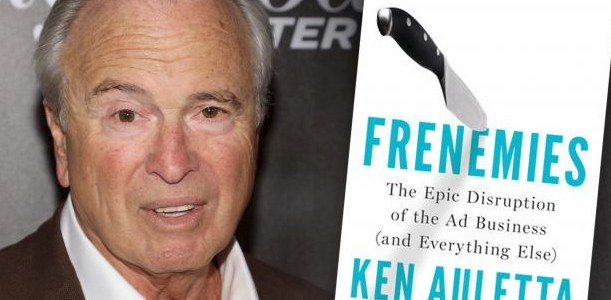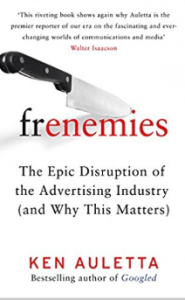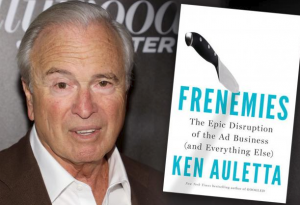
Metamorphosis of advertising from human creations to computer-delivered ads



Sir Marin Sorell the former CEO of WPP who resigned in April 2018 which he founded and grew into the world’s biggest advertising holding group, embroiled in contro0versy over his departure.
Ken Auletta states in the last chapter of Frenemies, “Seventy-two and still robust, Martin Sorrell was unlikely to step down any time soon” which had already proved wrong.
Madison Avenue used to control its destiny, but with the advent of new technologies, the control slipped away to Silicon Valley and China.
Auletta, a New Yorker writer who has covered both Wall Street and the media for decades, known the block of midtown Manhattan where Don Draper worked in TV series Mad Men and “the maitre d’ automatically delivers dry martini” to Michael Kassan, an industry consultant at its heart.
Auletta reveals the story of a global business worth $1tn to $2tn a year, in which personalities still matter but art is being gobbled up by data. The power has shifted, in Kassan’s view from Mad Men to “math Men” but really lies with a woman –Carolyn Everson, Vice-president of Global marketing solutions”. Aluetta portrays the power of figures such as Kassan, Sorrell and the latter’s bitter rival Maurice Levy, chairman of Publicis.
Advertising and marketing touch us on every corner of our lives powering almost all media. Auletta reveals the level of anxiety as former allies become competitors and accusations of kickbacks and corruption swirl. Carolyn Everson, Facebook’s head of sales and the survival of the media as we know it depends on the money generated by advertising and marketing revenue that is in peril in the face of technological changes and the fraying trust between the industry’s key players.
The storytelling master, Ken Auletta known for his previous tombs on the business including “Three Blind Mice: How the TV Networks Lost Their Way” and “Googled: The End of the World AS We Know It”. The book has several plugs from Industry moguls on its jacket including one from Horizon Media founder and former 4As Chairman Bill Koenigsberg and Barry Diller, who states that you “ toss this book at your peril”.
The sheer multitude and intimacy of personal data now held on Americans by companies including Facebook, Google and WPP’s Group M. These agencies are the most profitable parts of the holding groups, buying space on behalf of big advertisers across various media.
Irwin Gotlieb who runs Group M, who frankly told Auletta how he spent $2.5bn trying not to be outflanked by Facebook and Google.
By acquiring agencies with access to data from retailers, it built what amounts to a vast spreadsheet of 200m individuals and 40, 000 behavioural characteristics.
Want to sell a new brand of tomato sauce? Instead of buying space on TV and hoping Group M can put your targeted ad in front of people who buy a lot of it, by tracking the buying habits of those people with loyalty cards and whose details are cross-matched online.
These ads follow you around the internet as you browse- and they do really know who you are which really amounts to customer stalking. People do not realise that there is no free lunch in life and free services have to be paid for somehow. According to Auletta, the game may end not with GroupM and its peers doing the tracking, but with advertisers by passing them and dealing directly with Google and Facebook and perhaps the entire supply chain could be run by robots in the near future.
Frenemies ends with Kassan planning to open offices in London and Hong Kong.
Frenemies: The Epic Disruption of the Advertising Industry ( and Why This Matters) by Ken Auletta, Harper Collins £20, 360 pages.
